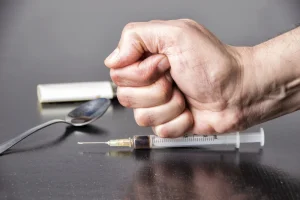
People can also make contact with an AUD counselor who is local to their area and can provide therapy and support. It may also be useful to rehearse the intervention with those involved prior to approaching the person with AUD. It is important that the conversation happens when the person a friend or relative wants to help is sober. They are best to pick a place that is private, safe, and comfortable for both parties. If a person is worried someone they care about has AUD, they should consider the following steps.
The three basic steps of urge surfing:

Maybe you’ve tried to overcome your addiction but have relapsed and feel like giving up. Words like relapse prevention techniques, coping mechanisms, detoxification systems and support groups may feel abrasive at this point. Any information published on this website or by this brand is not intended as a substitute for medical advice, and you should not take any action before consulting with a healthcare professional.
Don’t save your credit-card information

People with alcohol use disorder can’t stop drinking even when it causes problems, like emotional distress or physical harm to themselves or others. You may not need to completely reinvent your life to quit drinking, but making a few changes in your surroundings to help avoid alcohol triggers can make a big difference. Recovery can take a long time, so you may need ongoing treatment.
Alcohol Support Groups and Resources
- If you feel like your relationship with alcohol needs an overhaul, you’ve got plenty of company.
- If you’re having difficulty sticking to your goal or just want some extra guidance, consider reaching out for professional support.
- But some people choose to manage alcohol withdrawal themselves.
- You can then apply what you learned from the first time you quit or cut down to be more successful next time.
- There are a number of specialist alcohol services that provide help and support for the relatives and friends of people with a dependence on alcohol.
- During the recovery stage, it’s not uncommon to feel temporarily worse.
So far, there’s no consensus on the medical definition of recovery in alcohol treatment literature. Consider staging a family meeting or an intervention, but don’t put yourself in a dangerous situation. When you drink, sip slowly and take a break of 30 minutes or one hour between drinks.

When approaching someone with AUD or a drinking problem, it is important to do research and approach them calmly at an appropriate time and place. If this conversation does not work, it may be necessary to stage an intervention how to overcome alcoholism with the support of a professional or others. It might also be useful to contact a healthcare professional who specializes in addiction. They may be able to provide guidance on the best ways to approach someone with AUD.
- With a better awareness of their consumption and the effects alcohol may have, a person may be more willing to quit.
- However, some people who quit an addiction find that certain withdrawal symptoms seem to go on and on.
- Managing internal triggers may require keeping a journal or alcohol diary.
- For instance, your doctor might find that your heart and liver are in better shape, or your skin may have a certain new glow.
Quitting Cold Turkey
- Milder cases -- when people abuse alcohol but aren’t dependent on it -- are as well.
- These are challenging to avoid and work through because they may appear randomly.
- Emotionally, you may feel some anxiety or sadness about ending a chapter of your life and nervousness about the future.
- There are many resources available to help, including peer support groups, counseling, therapy, and inpatient rehabilitation.
- There are many different treatments that can help you during the process of overcoming an addiction, including medical and psychological approaches.
For example, a person who is trying to quit smoking would start by deciding whether they are going to stop smoking cold turkey or gradually reduce their nicotine use. Learning how to overcome an addiction is important for anyone experiencing a substance use disorder (SUD), alcohol use disorder (AUD), or behavioral addiction. While challenging, recognizing that there is a problem and learning more about the process of quitting are important first steps in recovery.
Common Signs and Symptoms of Denial



